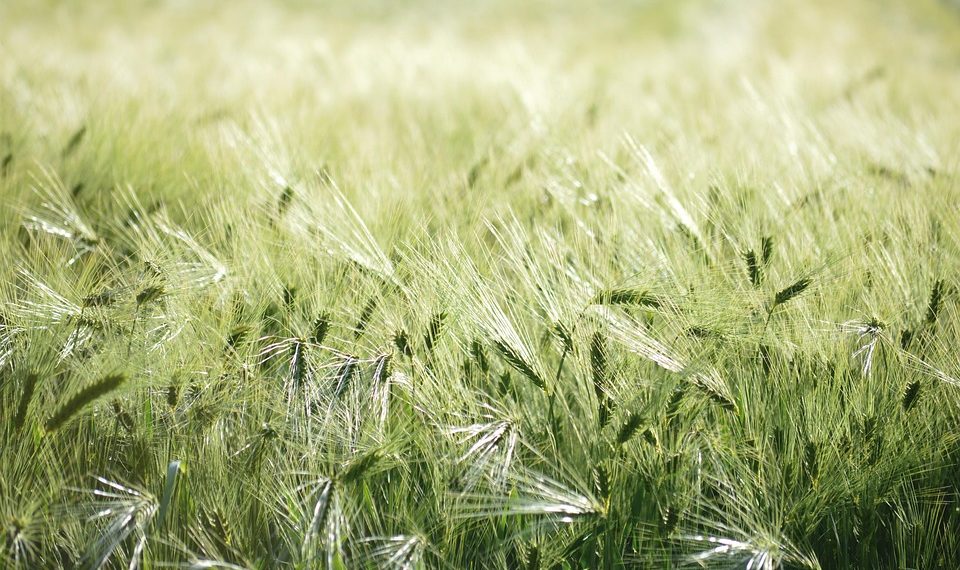Did you know that barley, one of the oldest cultivated grains, has been a staple in diets around the world for centuries? While many people associate barley with soups and salads, there’s a lesser-known gem that deserves the spotlight: barley water. This drink, made by soaking and boiling barley grains, is not just a refreshing beverage; it has some intriguing benefits for metabolism. Let’s dive into five refreshing ways barley water can give your metabolism a boost.
Contents
1. Rich in Dietary Fiber
One of the standout features of barley water is its high dietary fiber content. Fiber is essential for a healthy digestive system and plays a significant role in metabolism. When you consume fiber, it slows down the digestion process, leading to a more prolonged feeling of fullness. This can reduce overall calorie intake, which is beneficial for weight management.
Why It Matters
Research shows that a diet high in fiber can lead to improved metabolic health. A study published in the Journal of Nutrition found that dietary fiber enhances the body’s ability to burn fat. By incorporating barley water into your diet, you’re not only hydrating but also contributing to your daily fiber intake.
Pros and Cons
Pros:
- Promotes satiety, helping to control hunger.
- Aids in digestive health, which is crucial for efficient metabolism.
Cons:
- Some people may experience bloating or gas if they suddenly increase their fiber intake.
2. Hydration and Metabolic Function
Staying hydrated is crucial for optimal metabolic function. Barley water is an excellent way to hydrate, especially in hot weather. Proper hydration aids in various metabolic processes, including the breakdown of nutrients and the elimination of waste.
The Science Behind It
A study from the American Journal of Clinical Nutrition highlights that even mild dehydration can negatively impact metabolism. Conversely, staying adequately hydrated can enhance energy levels and metabolic functions. Barley water, being rich in electrolytes, can help maintain hydration levels, especially after exercise.
Pros and Cons
Pros:
- Refreshing and hydrating, perfect for hot days.
- Supports metabolic processes by maintaining fluid balance.
Cons:
- If consumed excessively, it could lead to overhydration, which can dilute electrolytes in the body.
3. Antioxidant Properties
Barley contains several antioxidants, such as phenolic acids and flavonoids, which can help combat oxidative stress. Oxidative stress is linked to various metabolic disorders, including obesity and diabetes. By drinking barley water, you’re not just quenching your thirst; you’re also providing your body with a dose of antioxidants that can support metabolic health.
What Research Says
According to a study published in Food Chemistry, barley has one of the highest antioxidant capacities among grains. These antioxidants can help neutralize free radicals in the body, potentially reducing the risk of chronic diseases that can affect metabolism.
Pros and Cons
Pros:
- Helps reduce oxidative stress, promoting better metabolic health.
- May lower the risk of chronic diseases associated with poor metabolism.
Cons:
- While beneficial, antioxidants should be consumed as part of a balanced diet, not relied upon solely for health.
4. Supports Blood Sugar Regulation
Barley water has a low glycemic index, making it an excellent choice for those looking to stabilize their blood sugar levels. Stable blood sugar levels are crucial for maintaining energy and preventing cravings, both of which can influence metabolism.
The Impact on Metabolism
Research indicates that foods with a low glycemic index can promote better insulin sensitivity, which is vital for metabolic health. A study in the American Journal of Clinical Nutrition found that whole grains like barley can improve insulin sensitivity and thus enhance metabolic function.
Pros and Cons
Pros:
- Helps maintain stable energy levels, reducing the likelihood of sugar crashes.
- Can aid in weight management by preventing excessive hunger.
Cons:
- Individuals with specific dietary restrictions (like gluten intolerance) should avoid barley.
5. Encourages a Healthy Gut Microbiome
A healthy gut microbiome is essential for optimal metabolism. Barley water can promote the growth of beneficial gut bacteria thanks to its fiber content. A thriving gut microbiome can enhance nutrient absorption, improve digestion, and even influence weight.
The Gut-Metabolism Connection
Research from the Nature Reviews Gastroenterology & Hepatology indicates that a diverse gut microbiome is linked to better metabolic health. By consuming barley water, you’re not just nourishing your body but also supporting the ecosystem of microbes that play a crucial role in metabolism.
Pros and Cons
Pros:
- Supports gut health, which is closely tied to metabolic efficiency.
- Can help improve digestion and nutrient absorption.
Cons:
- Changes in gut microbiota can take time, and results may not be immediate.
FAQs
1. How should I incorporate barley water into my diet?
You can drink barley water on its own, mix it with other beverages, or use it as a base for smoothies. It’s also delicious when flavored with lemon or mint!
2. Is barley water safe for everyone?
While generally safe, those with gluten intolerance or celiac disease should avoid barley. Always consult with a healthcare provider if you have specific dietary concerns.
3. How much barley water should I drink daily?
Moderation is key. A cup or two per day can be beneficial, but listen to your body and adjust accordingly.
4. Can barley water help with weight loss?
While it can support weight loss by promoting satiety and hydration, it’s most effective when combined with a balanced diet and regular exercise.
Conclusion
Barley water is more than just a refreshing drink; it’s a powerhouse of benefits that can enhance your metabolism in various ways. From its high fiber content to its antioxidant properties, barley water offers a holistic approach to supporting metabolic health. So next time you’re looking for a healthy beverage option, consider reaching for some barley water. It’s a simple, effective way to hydrate and nourish your body at the same time.
Remember, though, that while barley water can be beneficial, it’s best used as part of a balanced diet and healthy lifestyle. As always, consult with a healthcare provider before making significant changes to your diet.
This article is for educational purposes only and is not a substitute for professional medical advice. Always consult a qualified healthcare provider before making changes to your health routine.
References
-
Slavin, J. L. (2013). “Fiber and Prebiotics: Mechanisms and Health Benefits.” Nutrients, 5(4), 1417-1435. https://www.ncbi.nlm.nih.gov/pmc/articles/PMC3664911/
-
Hu, F. B., & Willett, W. C. (2002). “Optimal Diets for Prevention of Coronary Heart Disease.” Journal of the American College of Cardiology, 39(7), 1056-1064. https://www.jacc.org/doi/full/10.1016/S0735-1097(02)01764-6
-
Slavin, J. (2012). “Why Whole Grains Are Important.” Harvard Health Publishing. https://www.health.harvard.edu/staying-healthy/why-whole-grains-are-important
Get Your FREE Natural Health Guide!
Subscribe now and receive our exclusive ebook packed with natural health tips, practical wellness advice, and easy lifestyle changes — delivered straight to your inbox.















